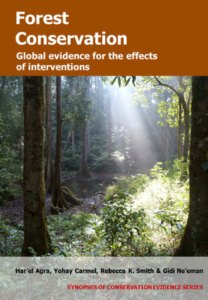 Back in February I wrote about our new bibliometric paper describing a new way to rank journals, which I still contend is a fairer representation of relative citation-based rankings. Given that the technique requires ISI, Google Scholar and Scopus data to calculate the composite ranks, I had to wait for the last straggler (Google) to publish the 2015 values before I could present this year’s rankings to you. Google has finally done that.
Back in February I wrote about our new bibliometric paper describing a new way to rank journals, which I still contend is a fairer representation of relative citation-based rankings. Given that the technique requires ISI, Google Scholar and Scopus data to calculate the composite ranks, I had to wait for the last straggler (Google) to publish the 2015 values before I could present this year’s rankings to you. Google has finally done that.
So in what has become a bit of an annual tradition, I’m publishing the ranks of a mixed list of ecology, conservation and multidisciplinary disciplines that probably cover most of the journals you might be interested in comparing. Like for last year, I make no claims that this list is comprehensive or representative. For previous lists based on ISI Impact Factors (except 2014), see the following links (2008, 2009, 2010, 2011, 2012, 2013).
So here are the following rankings of (i) 84 ecology, conservation and multidisciplinary journals, and a subset of (ii) 42 ecology journals, (iii) 21 conservation journals, and (iv) 12 marine and freshwater journals. Read the rest of this entry »





